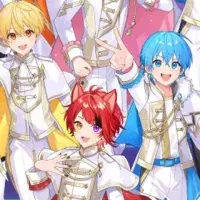
Lü Jia's Vision for Globalizing Traditional Chinese Music Through Innovation and Talent
Traditional Chinese Music Goes Global
In recent years, the richness of Chinese culture has flourished and gained significant recognition globally. At the heart of this movement is Lü Jia, a prominent figure in the Chinese music scene who serves as the Artistic Director of Music at the National Centre for the Performing Arts (NCPA) and Music Director of the China NCPA Orchestra. His journey, filled with remarkable accomplishments, illustrates the blend of tradition, innovation, and cultural exchange that defines the contemporary landscape of Chinese music.
A Personal Return to Roots
Lü Jia’s story is deeply personal and resonates with many in the artistic community. He left China in 1988 for further studies, quickly establishing himself in Europe’s competitive classical music scene by 1991. His experiences abroad honed his skills and perspectives, making his eventual return to Beijing in 2012 a pivotal moment. The world-class infrastructure provided by institutions like the NCPA served as a magnet, luring him back to contribute to the burgeoning music scene in China. Lü felt a strong responsibility to give back to the community that fostered his growth, aiming to guide young Chinese musicians on their journeys.
NCPA Orchestra: A New Era of Performance
The NCPA Orchestra, under Lü’s direction, embodies youth and enthusiasm. In their international performances, they effectively bridge the gap between traditional and contemporary styles, introducing audiences worldwide to the unique qualities of Chinese music. They have remarkable success on tours in countries such as South Korea, the United States, and various European nations, often leaving audiences in awe of the high artistic standards they provide.
In Lü's interviews, he recalls instances where entire audiences rose for standing ovations, surprised by the quality that a Chinese orchestra could present. His leadership reflects a commitment to excellence and cultural representation, showcasing not only orchestral mastery but also the emotional depth inherent in Chinese compositions.
Balancing Tradition and Modernity
The selection of repertoire plays a critical role in Lü's approach to performances, particularly when balancing both Chinese and international elements. When touring abroad, the orchestra adapts by considering the local culture and audience expectations, while in China, they aim to elevate the audience’s understanding of both local and international works.
This blend is further represented in their choice of pieces, often including cherished Chinese works like The Yellow River Piano Concerto. Such performances utilize Western orchestral forms to narrate distinctly Chinese stories, creating points of connection for diverse audiences.
Music as a Language of Colors
Lü likens music to colors, suggesting that Chinese classical and traditional music expresses emotions differently compared to Western music. While Western music is often characterized by structured harmony, Lü emphasizes that Chinese music seeks atmosphere and imagination.
This approach is essential when performing Chinese pieces with Western instruments, as it necessitates a balance between authenticity and the spiritual essence of the music. Just as Zao Wou-Ki’s artworks transcend their Western frameworks to express a distinctly Chinese identity, Lü Jia believes that music must convey cultural essence, facilitating a global understanding through universally recognizable narratives.
The Future of Chinese Music
Looking ahead, Lü Jia envisions continued growth for Chinese music on international platforms. Collaborative projects, international tours, and increased efforts to foster musical innovation are pivotal. With the concert hall landscape in China expanding, there is a pressing need for talented individuals in management and administration to support this cultural evolution.
Thus, Lü Jia stands at the forefront of exciting changes in music, uniting tradition with modernity, while opening pathways for young musicians to share their rich heritage with the world. In doing so, he not only redefines Chinese music's global identity but also inspires future generations to carry the torch of innovation beyond borders.
Topics Entertainment & Media)










【About Using Articles】
You can freely use the title and article content by linking to the page where the article is posted.
※ Images cannot be used.
【About Links】
Links are free to use.